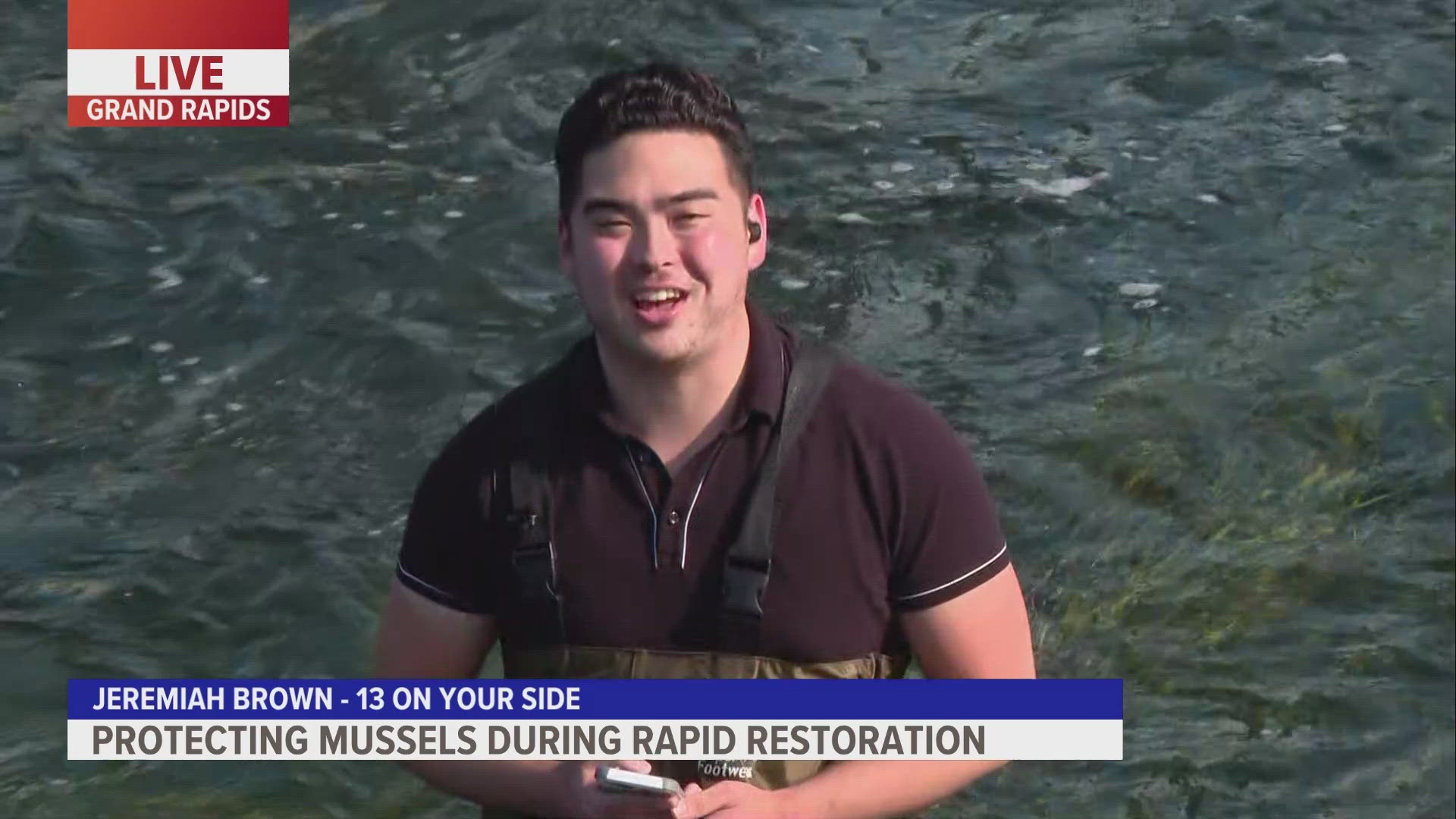GRAND RAPIDS, Mich. — City officials and members of the Grand Rapids WhiteWater team gathered for a press event on Thursday where they announced plans to begin relocating mussels in the Grand River.
The goal is to relocate nearly 15,000 mussels from a portion of the Grand River which spans the length of about eight football fields.
This marks a major milestone in a project aiming to restore the rapids in the Grand River by removing the low-head dams. It's a project that's been in the works for 15 years.
Teams of around 20 total divers and biologists will be in the river to locate, tag and safely relocate the mussels to habitats both upstream and downstream.
Divers can be seen between Fulton Street and I-196, with the public asked to stay at least 100 feet away from them.
The relocation work is expected to go through October.
Both officials and members of the dive team said it's a critical step to take to prevent mussel populations from being impacted by construction.
The city has consulted with state agencies who said relocation provides the most ecological benefits.
"The design for this project has been developed over numerous years and it's a design that is intended to reduce impacts to federally-listed and state-threat muscle species," said Matt Chapman, executive director for the Grand Rapids WhiteWater project. "When we have construction equipment in the river, there will be a lot of activity and so we are required by the Endangered Species Act to actually go out and remove as many of these mussels as possible."
Chapman said boulders and rocks have been historically removed from the river and that the project also looks to restore these natural habitats for the various species that call the river home.
"We hope to come back and actually see a better, healthier muscle population in the river in this project area," said Chapman.
The Grand River is home to the federally endangered Snuffbox Mussel, along with several state-threatened or endangered mussel species.
"We have incredible partners at the federal level, at the state level and a whole host of federal and state departments. They have been with us on this journey, helping us remove barriers, but also helping us try to figure out problems when they come up," said Grand Rapids Mayor Rosalynn Bliss.
In May, the city commission approved a $1.26 million contract with BioSurvey Group who will be handling the mussel relocation.
The city also received a $7 million grant from the Michigan Economic Development Corporation (MEDC) to fund the relocation, along with the low-head dam removals and installation of rocks.
The city is still waiting for approval from the state to receive the permit to begin the low-head dam removal. Officials said they expect a decision by the end of the year.
If approved, construction work could begin in July 2025.

